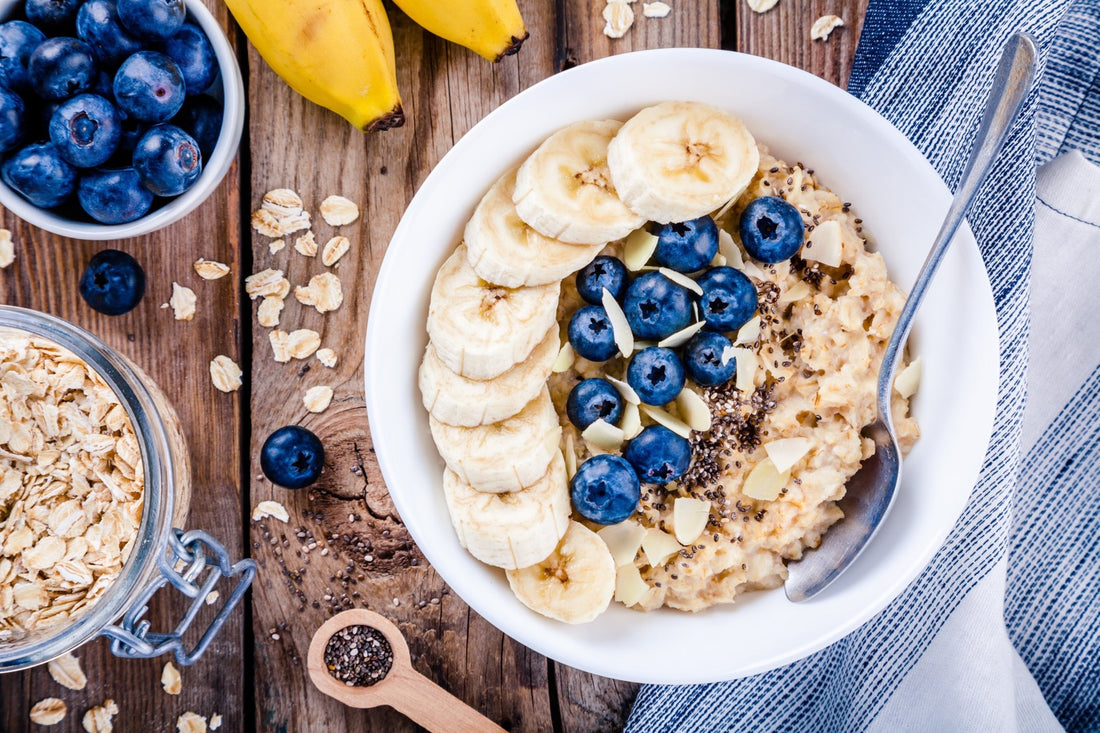
Why Does Dietary Fiber Matter? The Gut Punching Truth
While we obsess about carbs and protein, dietary fiber often go overlooked. Nearly all Americans fail to eat enough fiber, which is nuts as fiber is the closest thing we have to a true superfood (yes, you read that right!).
You might be asking: what is Fiber, exactly?
A type of carbohydrate, dietary fiber is essentially the structural part of plant foods (e.g. fruits, veggies, grains) that your body cannot digest or break down, according to the Mayo Clinic¹. As such, it passes relatively intact through your gut and out of your colon. This is not a bad thing; insoluble fibers, for example—which are found in most foods—can be digested by the good bacteria in the intestine, functioning as prebiotics. In this way, they promote the growth of “good” gut bacteria, which can have various positive effects on health, including weight, blood sugar control, immune and brain function.
If this doesn’t convince you to add more Fiber-goodness into your diet, maybe these five amazing benefits will change your mind.
1. May Improve Metabolic Health
A high-fiber diet—meaning at least 35 grams per day—is really good at kicking your metabolism into high gear². Since fiber is hard for the body to break down, it takes work, thereby burning calories. Fiber also produces short-chain fatty acids when it's broken down by your gut bacteria, which help induce feelings of fullness and keep you satiated for hours.
2. Have Healthier Gut Bacteria
The good bugs that make up your microbiome feed off fiber-and flourish. As your gut bacteria gobble up fiber that has fermented in your G.I. tract, they produce short-chain fatty acids that have a host of benefits-including lowering systemic inflammation, which has been linked to obesity and nearly every major chronic health problem.
3. Lower Your Odds of Heart Disease
A 2019 meta-analysis published in the medical journal The Lancet³, evaluated 185 prospective studies and 58 clinical trials with 4,635 adult participants and examined carbohydrate intake, fiber intake, and the related risks for cardiovascular disease (CVD). Research suggests that those who consume the highest amount of fiber were between 15 and 30 percent less likely to die from cardiovascular-related issues than those who consumed the lowest.
4. Strengthen Bones
Some types of soluble fiber—dubbed "prebiotics" and found in asparagus, leeks, soybeans, wheat and oats—have been shown to increase the bioavailability of minerals like calcium in the foods you eat, which may help maintain bone density.
5. May Help Shed Calories
Even if increasing your fiber intake is the only dietary change you make, you'll shed pounds. Fiber-rich foods not only fill you up faster and keep you satisfied longer, they also prevent your body from absorbing some of the calories in the foods you eat.
¹https://www.mayoclinic.org/healthy-lifestyle/nutrition-and-healthy-eating/in-depth/fiber/art-20043983
²https://jn.nutrition.org/content/138/3/439.long
³https://pubmed.ncbi.nlm.nih.gov/30638909/
